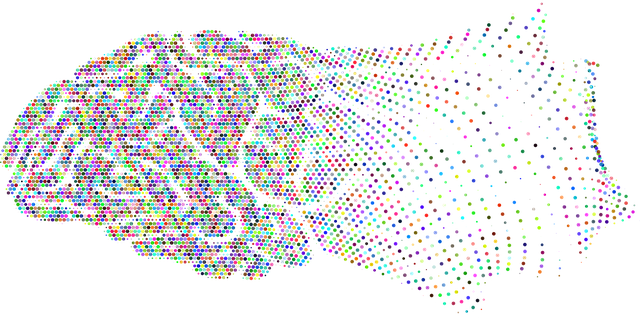Aurora Codependency Therapy (ACT) offers a unique, multi-faceted approach to mental wellness evaluation and treatment, focusing on codependent behaviors and their impact. Through quantitative methods like the Depression Anxiety Stress Scales (DASS), ACT measures symptom reductions in anxiety, depression, and stress. Qualitative data from client feedback, interviews, and focus groups provides deeper insights into participants' experiences with compassion cultivation and positive thinking. The program's long-term effectiveness is evaluated by tracking progress beyond the program duration, focusing on coping skills, confidence, and risk management. ACT adheres to strict ethical standards, prioritizing confidentiality, informed consent, and cultural sensitivity in its evaluation and improvements, ensuring a holistic, evidence-based approach to mental wellness.
Mental wellness program evaluations are crucial for gauging effectiveness, identifying areas of improvement, and ensuring client satisfaction. This article explores comprehensive evaluation methods, highlighting Aurora Codependency Therapy as a robust framework. We delve into quantitative metrics, qualitative feedback, long-term tracking, and ethical best practices. By understanding the impact of programs like Aurora, mental health professionals can enhance care, foster sustainable recovery, and provide evidence-based services.
- Understanding Aurora Codependency Therapy: A Framework for Evaluation
- Assessing Program Effectiveness: Quantitative Methods and Metrics
- Qualitative Insights: Client Feedback and Testimonials
- Long-term Impact and Sustainability: Tracking Progress Beyond the Program
- Ethical Considerations and Best Practices in Mental Wellness Program Evaluations
Understanding Aurora Codependency Therapy: A Framework for Evaluation

Aurora Codependency Therapy (ACT) offers a unique and comprehensive framework for evaluating mental wellness programs. This therapeutic approach recognizes that many individuals struggle with codependent behaviors, which can hinder their emotional healing processes. By addressing these patterns, ACT empowers clients to develop healthier relationships with themselves and others, fostering compassion cultivation practices that are essential for self-care routine development for better mental health.
The evaluation methods within ACT focus on identifying and modifying the underlying beliefs and behaviors that contribute to codependency. This involves assessing the individual’s sense of self, their emotional responses, and the dynamics within their relationships. Through structured exercises and introspective practices, clients gain insights into their triggers and coping mechanisms, enabling them to make informed decisions about their mental wellness journey. By integrating these findings into a holistic framework, ACT facilitates personalized interventions that support long-term recovery and improved overall well-being.
Assessing Program Effectiveness: Quantitative Methods and Metrics

Evaluating the effectiveness of a mental wellness program is a multifaceted process, and quantitative methods play a crucial role in understanding its impact. One such program, Aurora Codependency Therapy (ACT), employs various metrics to assess its success. These include measuring changes in participants’ symptoms through standardized questionnaires, such as the Depression Anxiety Stress Scales (DASS). By comparing pre- and post-program scores, researchers can quantify the reduction in anxiety, depression, and stress levels, providing a clear indicator of ACT’s effectiveness in improving mental health outcomes.
Furthermore, qualitative data collection techniques, alongside quantitative measures, offer a more comprehensive evaluation. Interviews and focus groups facilitate in-depth understanding of participants’ experiences with compassion cultivation practices, community outreach program implementation, and positive thinking. This dual approach allows for the identification of specific aspects of the program that resonate most strongly with individuals, contributing to the refinement and optimization of ACT and similar interventions over time.
Qualitative Insights: Client Feedback and Testimonials

Aurora Codependency Therapy places significant emphasis on gathering and analyzing qualitative insights through client feedback and testimonials. This approach allows for a deeper understanding of the emotional healing processes experienced by participants. By listening to their stories, we gain valuable knowledge about what works best in supporting individuals in managing stress and cultivating healthy emotional regulation skills.
Client feedback provides authentic evidence of the program’s effectiveness, highlighting specific aspects that resonate with them most. These insights guide the continuous improvement of our services, ensuring they remain aligned with the evolving needs of those seeking support. Testimonials from previous clients not only reinforce the positive outcomes of Aurora Codependency Therapy but also inspire hope and encouragement for those facing similar challenges.
Long-term Impact and Sustainability: Tracking Progress Beyond the Program

The true measure of a mental wellness program’s effectiveness isn’t just found in immediate outcomes but in its lasting impact and sustainability. Tracking progress beyond the program’s duration is essential to understanding how participants’ lives are transformed over time, especially with methods like Aurora Codependency Therapy. This long-term evaluation involves assessing the continuity of skills acquired, such as coping skills development, confidence boosting, and risk management planning for mental health professionals. By examining these factors, we gain insights into whether the program’s benefits extend into individuals’ daily lives, personal relationships, and overall well-being.
Regular check-ins, follow-up surveys, and case studies can provide valuable data on how participants maintain their mental health and navigate challenges post-program. This approach allows for a comprehensive understanding of the program’s long-term sustainability, identifying areas that may require adjustments or additional support to ensure ongoing positive outcomes. Such continuous evaluation is crucial in refining mental wellness programs and fostering resilient individuals equipped to thrive in an ever-changing world.
Ethical Considerations and Best Practices in Mental Wellness Program Evaluations

When evaluating mental wellness programs, such as Aurora Codependency Therapy, it’s paramount to uphold ethical standards and best practices to ensure the integrity and effectiveness of the assessment process. Confidentiality, informed consent, and respect for participants’ autonomy are foundational elements that must be rigorously maintained. Evaluators should clearly communicate the purpose and potential outcomes of the program to all stakeholders, obtaining explicit consent before initiating any assessment or intervention.
Moreover, cultural sensitivity is crucial when dealing with diverse populations. Incorporating strategies for positive thinking and emotional healing processes should be tailored to individual needs and cultural contexts. Effective mental wellness program evaluations also rely on robust data collection methods that include qualitative and quantitative techniques. By combining surveys, interviews, and observation, evaluators can gain a comprehensive understanding of participants’ experiences, engagement, and perceived benefits, such as improvements in communication strategies. This holistic approach allows for a more accurate assessment of program effectiveness and informs evidence-based improvements to mental wellness initiatives.
The evaluation of mental wellness programs, particularly those based on innovative frameworks like Aurora Codependency Therapy, is essential for ensuring their effectiveness and long-term sustainability. By combining quantitative metrics with qualitative insights, as outlined in this article, program evaluators can gain a comprehensive understanding of participant progress. Assessing both short-term outcomes and the lasting impact beyond program completion allows for continuous improvement and ethical best practices. Aurora Codependency Therapy’s structured approach to evaluation provides valuable data on client feedback and serves as a powerful tool to enhance mental wellness initiatives.













